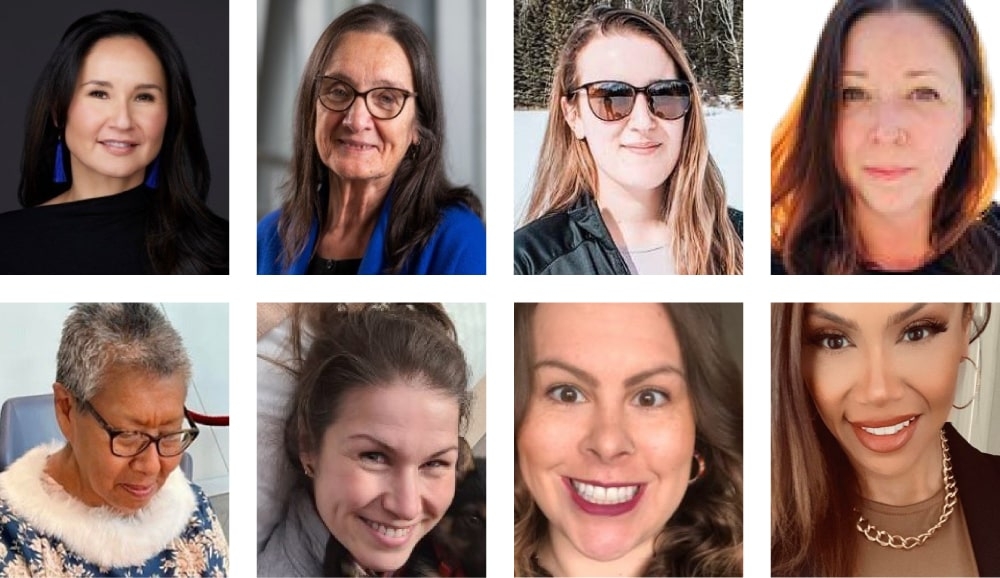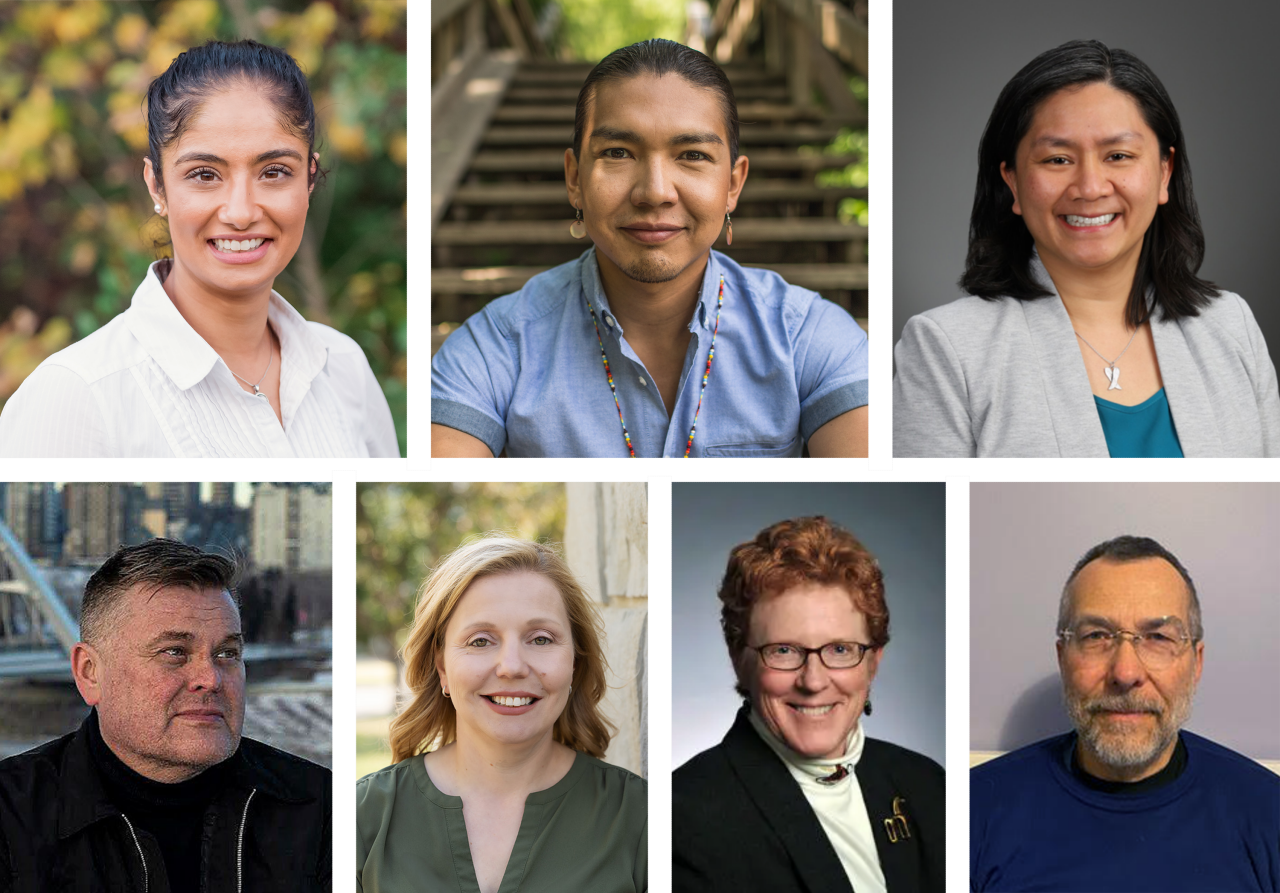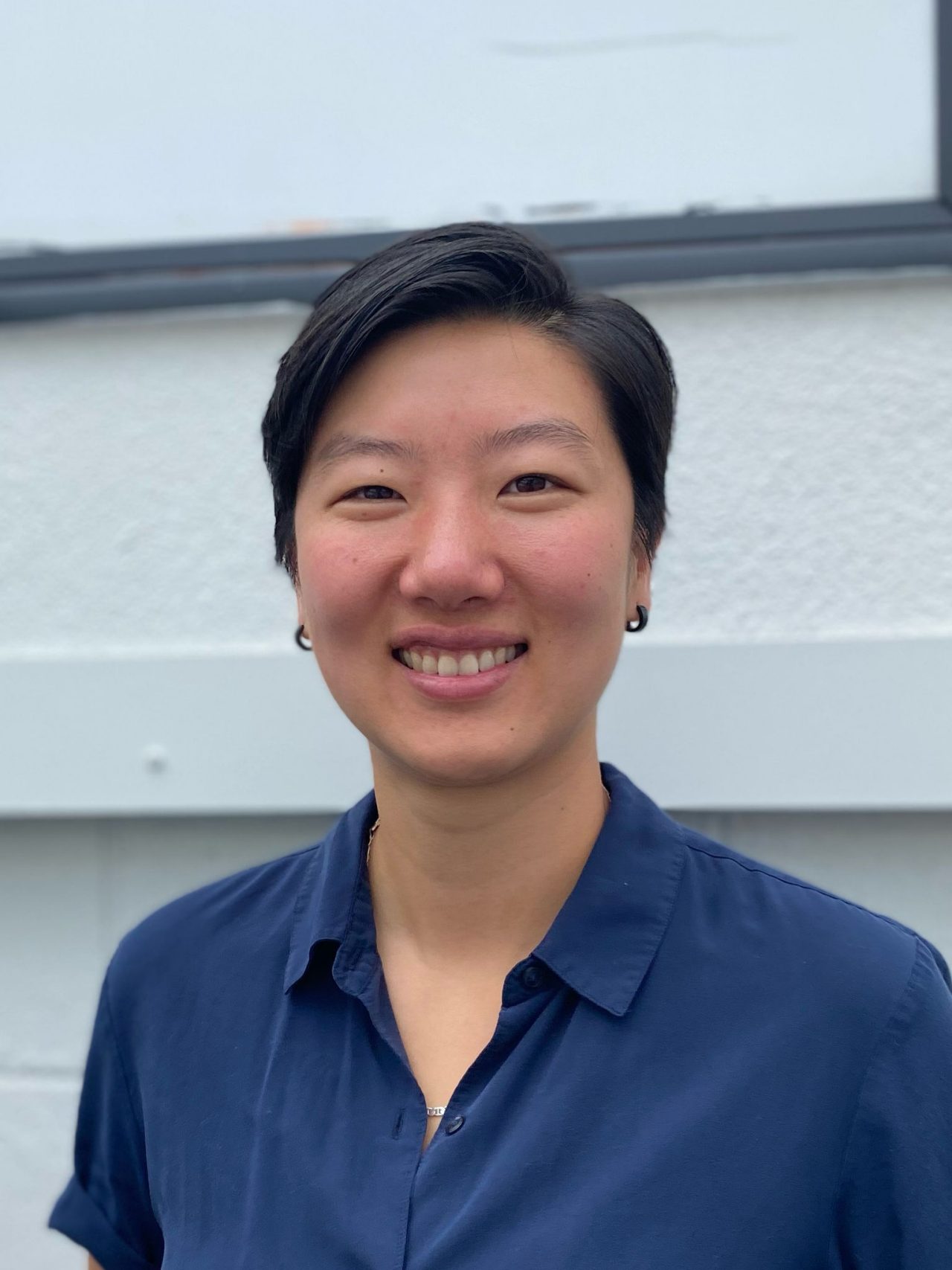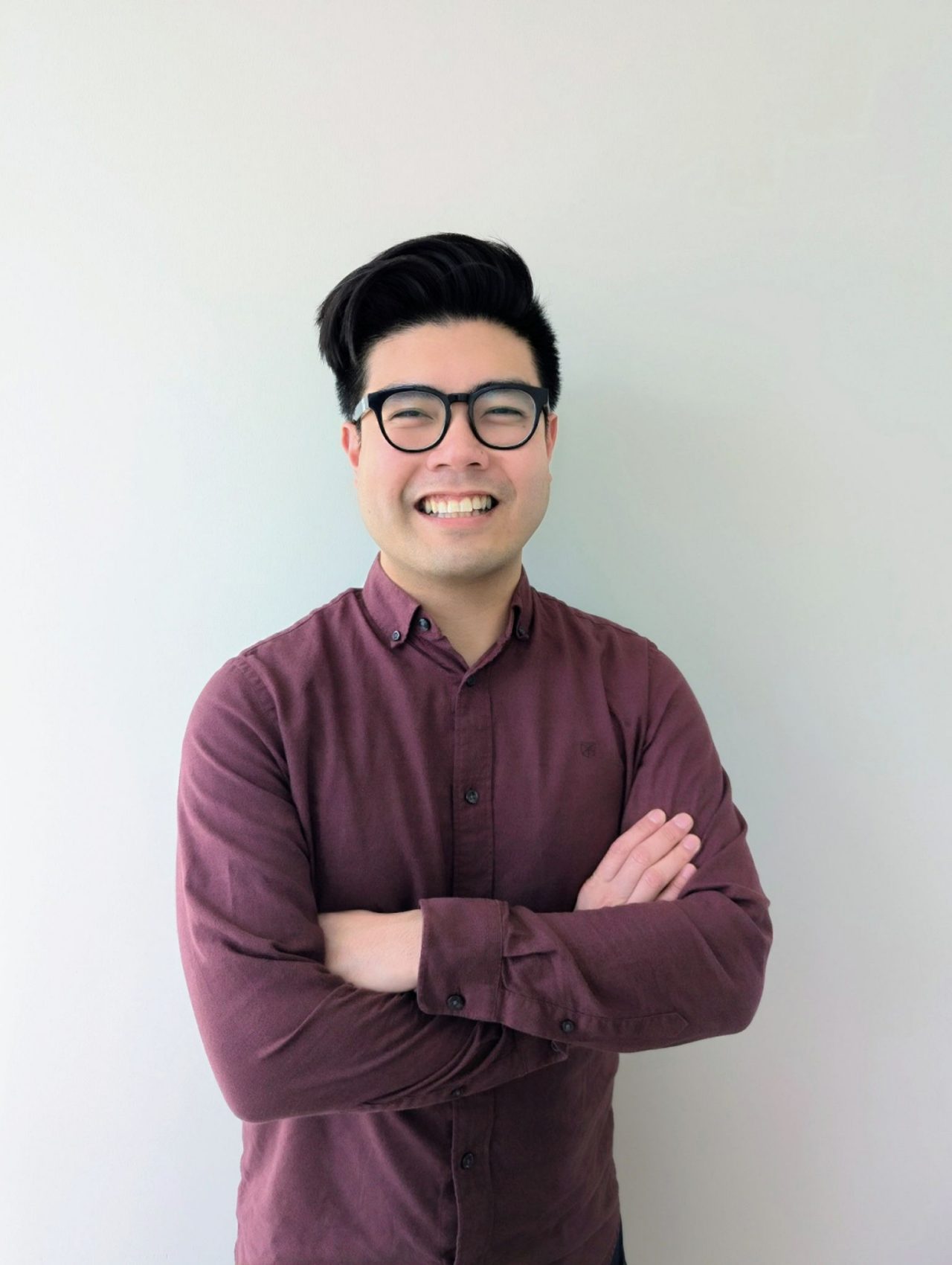- My MOC
- Directory
Menu

 5 MIN READ
5 MIN READ
We’re pleased to announce the recipients of the Medical Education Research Grant and the Robert Maudsley Fellowship for Studies in Medical Education.
Funding excellence in Canadian specialty medical education research, this grant of up to $50,000 supports projects that will advance the field of postgraduate medical education or continuing professional development.
Tibetha Kemble, PhD
“Reflexive Evaluation of the Indigenous Admissions Process (IAP) for the Ob/Gyn Program at the University of Alberta: A Community-Driven Approach”

From top left: Tibetha Kemble, PhD; Kokum Hazel McKennitt; Cara Gallow, MD, BSc; Cassandra Felske Dursken, MD, CCSP; Myna Manniapik, Knowledge Holder; Rebecca Rich, MD, FRCSC, BSc, MSc; Kristin Black, MD, FRCSC; Helen Greene, Indigenous Culture Liaison, AHS (submitted photos)
This work is important to medical education because it seeks to strengthen inclusion within residency training by ensuring that Indigenous applicants have a responsive, culturally-safe, and supportive admissions process that meets their identified needs and aspirations. The Indigenous Admissions Pathway (IAP) addresses historical and systemic barriers that have limited Indigenous representation in medicine, fostering a health care workforce that better reflects and serves distinctions-based Indigenous Peoples and communities in what is now Alberta. By evaluating the effectiveness of the IAP, we ensure that the process remains responsive, culturally safe, and aligned with the needs and aspirations of distinctions-based Indigenous applicants. This research also informs faculty and program leaders about the challenges and opportunities within the current system, encouraging ongoing learning and institutional change. Ultimately, a well-supported and representative Indigenous physician workforce enhances Indigenous-patient care, promotes culturally competent medical practice, and contributes to addressing persistent health disparities that are distinct to Indigenous Peoples as a result of historic and ongoing colonization.
Jaspreet Khangura, MD, FRCPC (EM), MSc
“Nehiyô miyopimatisiwin, kiskinwahamakosiyan ekwa matotisân (Cree Health, Learning & Sweatlodge): Evaluation of a land-based Indigenous Health learning experience for Canadian Emergency Physicians”

From top left: Jaspreet Khangura, MD, FRCPC (EM), MSc; James Makokis, MD, BSc, MHSc, CCFP; Jaime Yu, MD, FRCPC, MEd; Wayne Clarke, EdD, MA, BBA; Catherine Patocka, MD, FRCPC, MHPE, PhD; Carol Hodgson, MS, PhD; James Stempien, MD, BSc, FCFP, CCFP-EM, CCPE, MA (submitted photos)
This project directly responds to the 2015 Truth and Reconciliation Commission's Calls to Action, emphasizing the need for substantive changes in Indigenous Health training for emergency medicine professionals and trainees. Our project harnesses the expertise of Indigenous scholars, Elders & Knowledge Keepers and leaders in emergency medicine education to create an innovative, land-based curriculum that goes beyond traditional classroom settings and is grounded in situated cognition and transformative learning theories.
This approach enhances cultural competency and sensitivity towards Indigenous health issues and also fosters a deeper, experiential understanding of Indigenous knowledge and healing practices. By focusing on emergency medicine, the project impacts a critical area of health care where Indigenous patients often encounter significant barriers. Lessons learned from the evaluation of this experience will help further develop similar training, hopefully across institutions nationally. The incorporation of Indigenous knowledge and teaching methods, guided by Elders, into education programs represents a significant step towards Reconciliation and better meeting Indigenous health needs and rights.
The Robert Maudsley Fellowship provides up to $40,000 over two years to help specialists acquire knowledge and skills in the field of medical education in order to develop educational programs, evaluation methods and medical education research.
Xin Mei Liu, MDCM, FRCPC
“Resident experiences of hierarchy in medicine: adult-learning or infantilization?”

Xin Mei Liu, MDCM, FRCPC (submitted photo)
Dr. Liu’s goal is to better understand some of the blind spots of medical education, focusing on culture, systems, and structure that we have taken for granted. While residents are adult learners entering post-graduate training with their own set of life experiences, circumstances, and goals, there is little known about how much of this previous life experience is seen as value added.
Hierarchy in residency training allows for different levels of entrustment essential to ensure patient safety and support clinical training. However, Dr. Liu wonders if the influence of medical hierarchy seeps into other aspects of a resident's experience. This project explores how power dynamics within medical hierarchies shape residents’ experience and their ability to pursue personal and professional goals.
Lorenzo Madrazo, MD, FRCPC
“Exploring How We Include Resident Voices in Residency Program Leadership: A Qualitative Study”

Lorenzo Madrazo, MD, FRCPC (submitted photo)
This work is important to medical education because while residents are often positioned as key stakeholders in medical training programs, the extent to which their voices are included in program leadership remains unclear. This project explores the sociocultural and structural factors that may influence residents’ inclusion in residency program leadership, identifying both potential barriers and enablers for meaningful inclusion. Our findings may help inform policy and training initiatives that support more inclusive leadership structures within residency programs, aligning with accreditation standards that emphasize resident involvement. Moreover, this work contributes to broader discussions on leadership development by considering the external factors that shape residents’ roles as leaders. By offering insights that extend beyond Canadian postgraduate medical education, this research has the potential to inform leadership frameworks and medical education practices in international and interdisciplinary contexts.
Erene Stergiopoulos, MD, FRCPC, MA
“Licensing practices for Canadian medical learners and physicians with health conditions: An institutional ethnography”

Erene Stergiopoulos, MD, FRCPC, MA (submitted photo)
This work is important to medical education because it aims to provide an in-depth understanding of the medical licensure process experienced by medical learners and physicians with disabilities. Licensure policy reform is a current priority in Canada, where licensing questions about health conditions are considered a major barrier to disclosure and treatment seeking for physicians. By understanding the experiences of physicians and trainees with disabilities, alongside the policies and texts that coordinate their decisions about help-seeking and treatment, this work aims to contribute to policy development at the level of training institutions, Physician Health Programs, and regulatory Colleges.